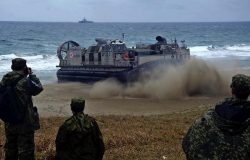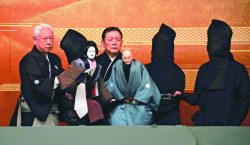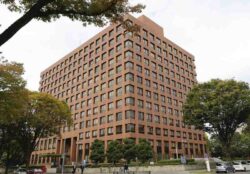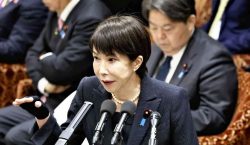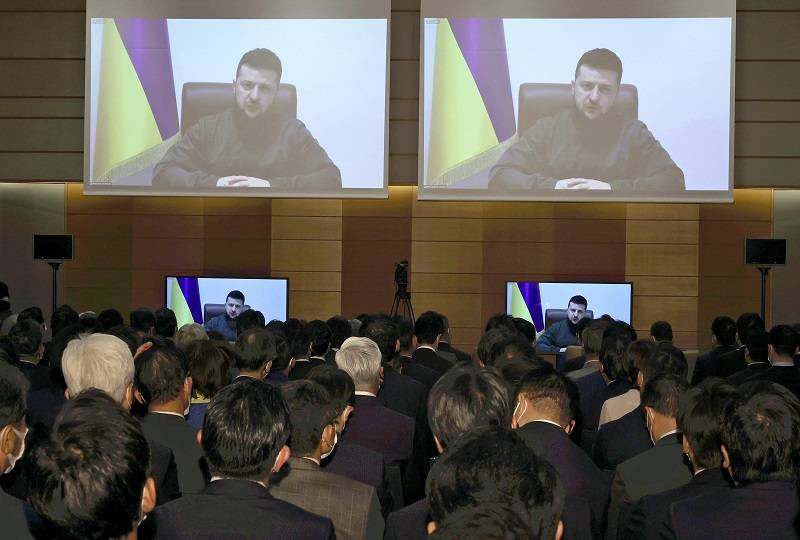
Ukrainian President Volodymyr Zelenskyy delivers a virtual address to the Diet on March 23, amid the Russian invasion of his country.
17:00 JST, April 25, 2022
On Dec. 2, 1958, in Tokyo, Philippine President Carlos P. Garcia delivered the first speech by a foreign leader to the Diet after World War II. A guerilla fighter active in the resistance movement during the 1942-45 Japanese occupation of the Philippines, Garcia played an instrumental role in concluding reparations negotiations with Japan. In his speech, Garcia stated bluntly that “the lapse of 12 years has not completely healed the wounds” of the war, but he expressed hope for future developments between the two countries.
Specifically, he noted Japan’s “renunciation of war as an instrument of national policy” with Article 9 of its postwar Constitution, and that “the policy of waging wars of aggression has become a thing of the past.” Garcia’s speech illustrated how memories of World War II were still very much alive a dozen or so years after the war, and that Japan at that time was still not fully trusted by international society.
More than 60 years after Garcia’s speech, Ukrainian President Volodymyr Zelenskyy delivered a virtual address to the Diet on March 23, amid the Russian invasion of his country. Zelenskyy expressed his gratitude, saying that Japan was “the first in Asia to put real pressure on Russia,” and he called for Tokyo to maintain sanctions against Moscow. He argued that for the U.N. Security Council “to become effective” it needs reform — a perception shared by Japan. Zelenskyy also stated that Japan’s leadership can play a major role in this development. He also described Japan as the leader in Asia in urging Tokyo to exert its influence on other Asian countries.
Prior to his address to the Diet, Zelenskyy also addressed the legislatures of various countries, including the United States, Britain and Germany. In those speeches, the wartime leader called for military assistance and tighter sanctions against Russia. Japan, which belongs to the Group of Seven advanced nations like the three nations above, was the first country in Asia that Zelenskyy contacted.
Because of the Ukrainian president’s high expectations for other countries, such as military assistance, and his likening the Russian invasion to the attack on Pearl Harbor in his U.S. speech, there was initial reluctance among Japanese parliamentarians to let him speak before the Diet. A member of the Diet Affairs Committee of the ruling Liberal Democratic Party tried to refuse, saying that the administration of Prime Minister Fumio Kishida should talk to Ukraine first. Kenta Izumi, leader of the largest opposition party, the Constitutional Democratic Party of Japan, insisted on social media that a summit and joint statement are absolute prerequisites before a direct speech to the Diet and that the content of the speech should be kept solely within the scope of the agreement between the two countries. Both must have forgotten the fact that Ukraine is in a war for its very survival. Although these opinions do not represent the mainstream of Japanese public opinion, some conservative members of the LDP also raised concerns about Zelenskyy’s “Remember Pearl Harbor” comment, and the Diet member who coordinated the speech asked the Ukrainian side in advance not to mention Pearl Harbor and to keep the speech within the bounds of “common decency.”
The reason for such concerns can be explained by Japan’s political culture of “nemawashi” (making necessary preparations to build a consensus) in which unpredictable events are best avoided. It is believed that if you are suddenly confronted with a request and are unable to meet it, you and the other party could both be shamed. As U.S. anthropologist Ruth Benedict explained in her 1946 book “The Chrysanthemum and the Sword,” there is a “culture of shame” in Japan.
In actuality, Zelenskyy’s speech did not contain any requests that would be difficult for the Japanese government to implement. Kishida immediately followed Zelenskyy’s speech with an announcement of additional humanitarian assistance to Ukraine. One Cabinet member expressed relief, stating, “I thought we would be embarrassed if they made demands that Japan could not comply with, such as providing weapons.” A senior Foreign Ministry official also said, “I am glad that Ukraine did not make a request for aid in arms.” This is indeed the reality in Japanese politics.
During a press conference at the Japan National Press Club on April 1, Ukrainian Ambassador Sergiy Korsunsky explained why Ukraine threw a softball when it came to Japan. The words in the speech were “very carefully chosen,” he said. He added that Ukraine of course knows about Article 9. Zelenskyy’s speech had given consideration to the Japanese political situation indeed, embodying the world’s expectations of Japan today and highlighting its limitations.
The fact of the matter is that Japan’s security policy is constrained. Article 9 of the Constitution — the one Garcia said gave him hope for the future development of ties between Japan and the Philippines — prescribes the “renunciation of war,” the prohibition of “war potential,” and the denial of “the right of belligerency of the state.” The current Constitution does not give legal grounds for the type of military assistance requested by Ukraine of Western countries. Following the crisis in Ukraine, the Japanese government hastily revised the operational guidelines of the Three Principles on Transfer of Defense Equipment and Technology and provided bulletproof vests to Ukraine — but full-scale arms transfers are still not legally permissible. The reality is that “this is the limit of what Japan can do at this point,” according to Japanese government officials and politicians.
In lieu of full-scale military assistance, the Japanese government has joined other G7 nations in imposing economic sanctions on Russia. Japan has also provided humanitarian assistance, including dispatching Foreign Minister Yoshimasa Hayashi to Poland to bring 20 evacuees from Ukraine to Japan on a government plane. This should be commended.
Yet the question remains whether Japan should stay as it is. In post-World War II Japan, the argument in support of maintaining Article 9 of the Constitution as a means to protect the country has been made, mainly by liberals. However, Russia’s invasion of Ukraine has brought home to many in Japan the reality that, even with the establishment of the current international order supported by international laws, a country can unilaterally attempt to challenge the status quo by using its military force.
The Far East has many red lines. China is a neighbor that exerts military pressure on others in the Taiwan Strait, the East China Sea and the South China Sea through its military power. North Korea has been extending the range of its ballistic missiles with the aim of acquiring the capability to break through the Japanese and U.S. missile defense systems. Japan arguably faces its most severe security environment since World War II.
The state of national defense should be a focus of the House of Councillors elections coming in July. We must debate how to strengthen deterrence amid growing security concerns. In this era of massive change, it is important to return to the Constitution to tackle fundamental issues. Public debate must be deepened from a broad perspective because the world will never go back to the way it was before the Ukraine war.
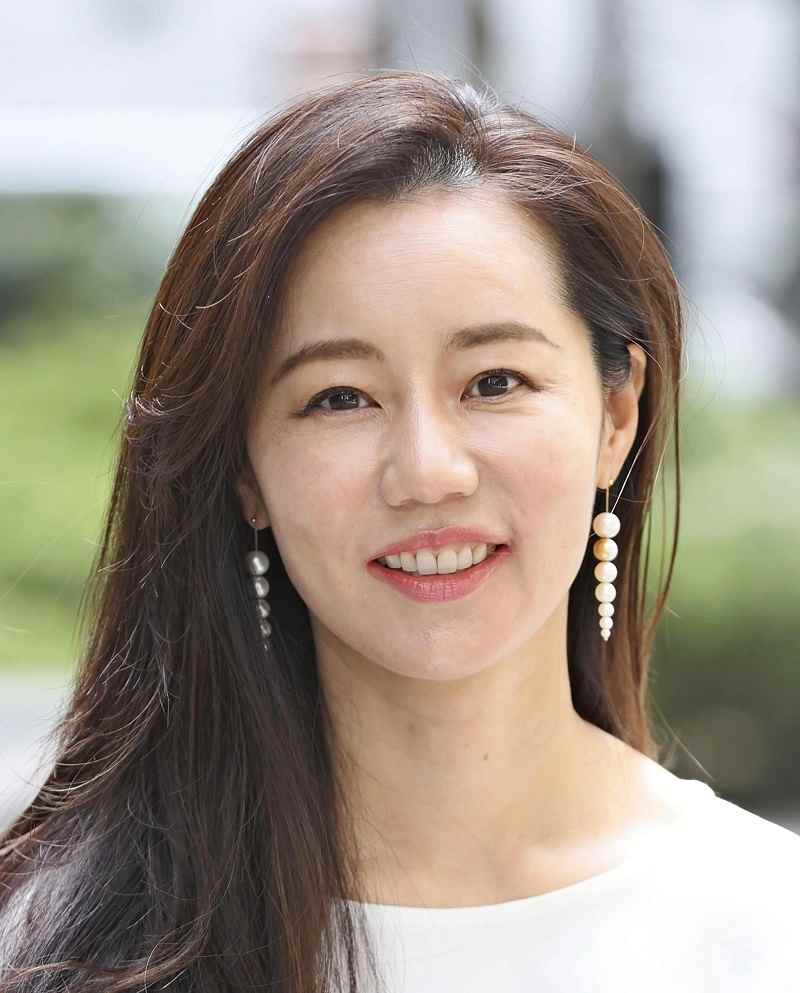
Yuko Mukai
Mukai is a staff writer in the Political News Department of The Yomiuri Shimbun.
Top Articles in Editorial & Columns
-

Riku-Ryu Pair Wins Gold Medal: Their Strong Bond Leads to Major Comeback Victory
-

Reciprocal Tariffs Ruled Illegal: Judiciary Would Not Tolerate President’s High-Handed Approach
-

China Provoked Takaichi into Risky Move of Dissolving House of Representatives, But It’s a Gamble She Just Might Win
-

Japan’s Plan for Investment in U.S.: Aim for Mutual Development by Ensuring Profitability
-

Flu Cases Surging Again: Infection Can Also Be Prevented by Humidifying Indoor Spaces
JN ACCESS RANKING
-

Producer Behind Pop Group XG Arrested for Cocaine Possession
-

Japan PM Takaichi’s Cabinet Resigns en Masse
-

Man Infected with Measles Reportedly Dined at Restaurant in Tokyo Station
-

Israeli Ambassador to Japan Speaks about Japan’s Role in the Reconstruction of Gaza
-

Videos Plagiarized, Reposted with False Subtitles Claiming ‘Ryukyu Belongs to China’; Anti-China False Information Also Posted in Japan





